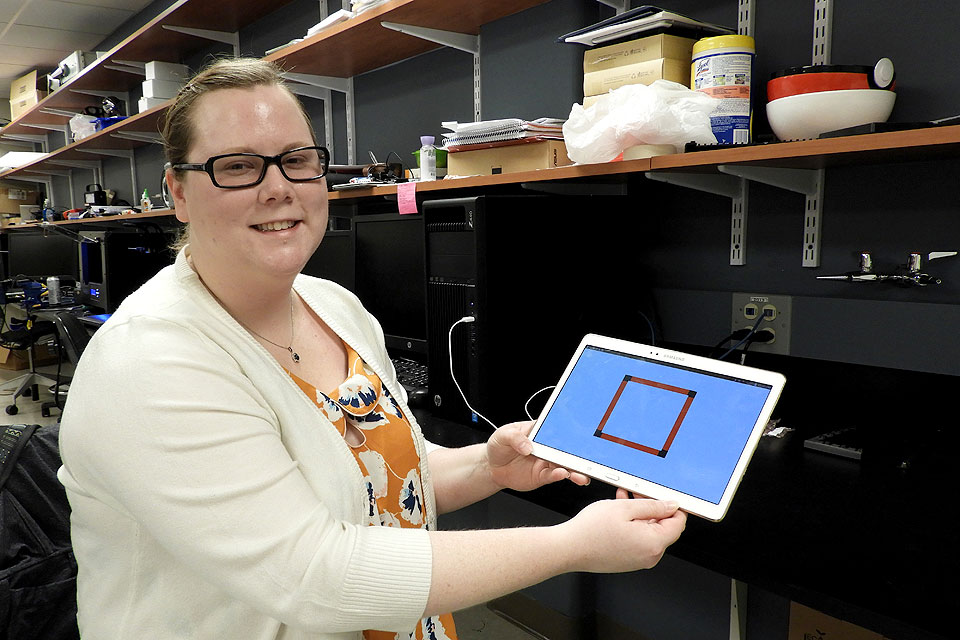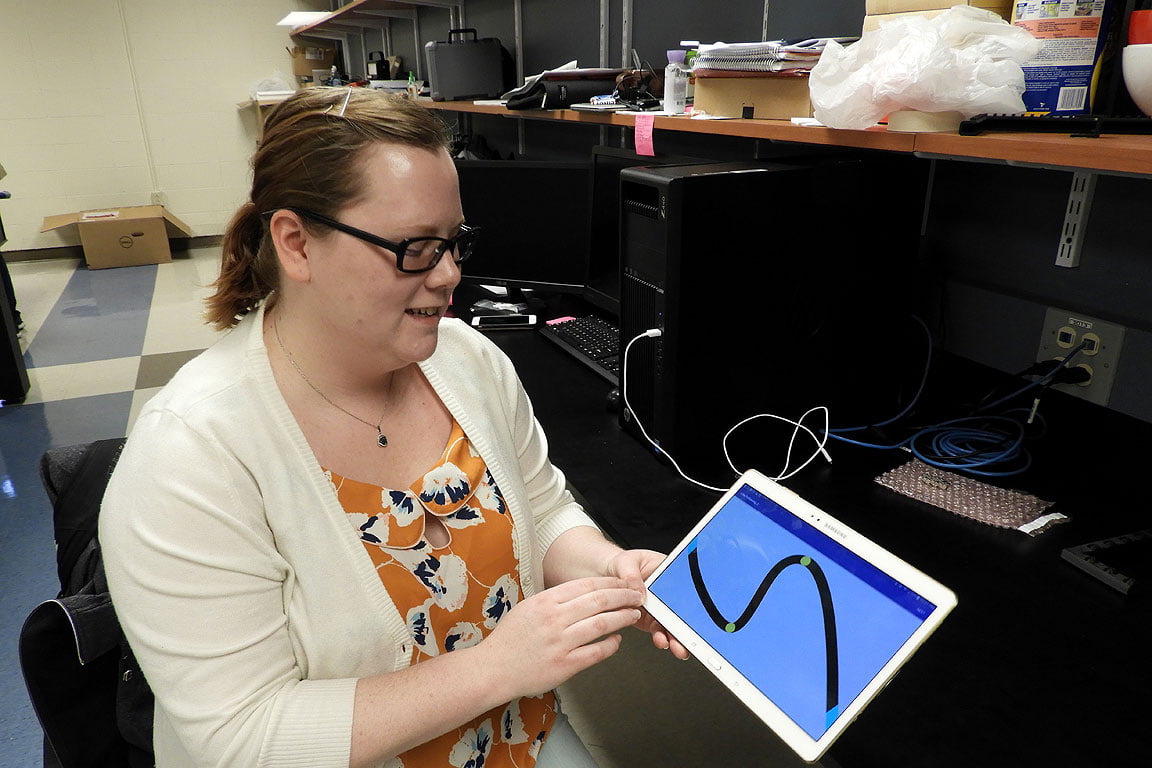Parks Graduate Student Combines Love of Psychology with Designing Tomorrow's Technology
When she stepped into her first psychology classroom, Jen Tennison hadn’t expected that her interest in cognitive behavior would lead her to pursue research at Saint Louis University as a doctoral student in the Department of Aerospace and Mechanical Engineering.
Now on her path to a Ph.D., Tennison has become one of 10 people nationwide to receive the National Science Foundation’s prestigious Community for Advancing Discovery Research Education (CADRE) fellowship. The competitive CADRE program brings fellows together for professional development opportunities and amplifies the impact of their research designed to improve the teaching of science, technology, engineering and math (STEM) for students in pre-school, grade school and high school.
Tennison combines her love of psychology and cognitive behavior with coding and software development to engineer better technology for the people with impairments ranging from vision issues to autism. Her interest in making technology accessible stems from watching her younger brother, who has autism, struggle with using technology that hadn’t been designed with his needs in mind.
“I really wanted to make my brother’s life a little better, a little more independent, through better access to technology,” Tennison said.
Her background in psychology, she said, gives her a perspective unique among engineers.
“I can make technology and write code for less-than-ideal situations,” Tennison said, noting that the best design can fail to help a person if not built with real-world conditions – and a wide range of people and abilities – in mind. Her current work, with SLU assistant professor Jenna Gorlewicz, Ph.D., focuses on creating touchscreen programs that use vibrations and tones to assist those with visual impairments.
Tennison met Gorlewicz, then on faculty at Southern Illinois University at Edwardsville, while getting her bachelor’s degree. She started as a volunteer in Gorlewicz’s research lab and grew into a critical team member. The more Tennison worked with computer programming and coding, the more her direction shifted from clinical psychology to her future in engineering.
“All of these events had a domino effect,” she said. “It all fell into place.”
After Gorlewicz accepted a faculty post at SLU’s Parks College of Engineering, Aviation and Technology, Tennison decided to make the leap into the doctoral program in Gorlewicz’s new department. While she entered SLU’s program with an unconventional major, Tennison said that she found her fellow students and faculty members valued her perspectives.
“Everyone was very open to me working on those human-oriented projects. “It’s all about clearing up those misconceptions that psychology is only for a clinical setting,” Tennison explained. “There’s a place for psychologists in designing tablets and robots.”
Parks College of Engineering, Aviation and Technology graduates technically proficient and socially responsible engineering and aviation innovators. To learn more, visit the college.
Tennison's award is National Science Foundation award number DRL 1644538.



















